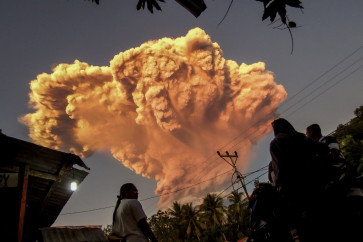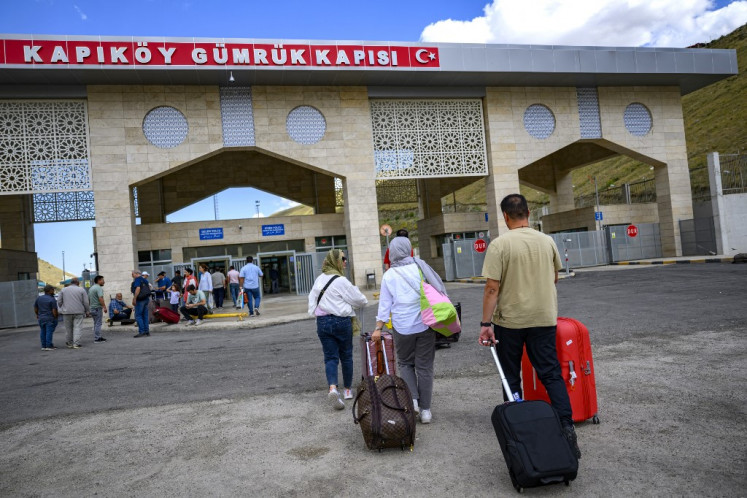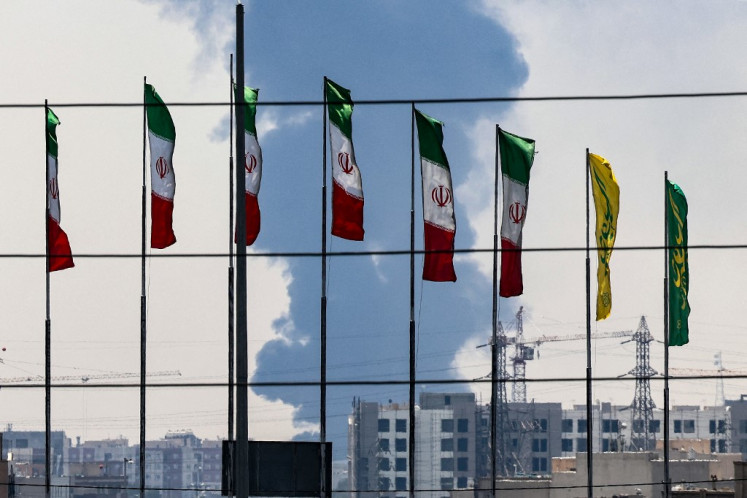Popular Reads
Top Results
Can't find what you're looking for?
View all search resultsPopular Reads
Top Results
Can't find what you're looking for?
View all search resultsThailand embarks on new economic drive
The Thai government is gearing up for tighter competition in the region with a host of measures to drive economic development, setting out mega projects as a springboard to get out of the middle income trap and becoming the industry and trade hub in the ASEAN Economic Community (AEC)
Change text size
Gift Premium Articles
to Anyone

T
he Thai government is gearing up for tighter competition in the region with a host of measures to drive economic development, setting out mega projects as a springboard to get out of the middle income trap and becoming the industry and trade hub in the ASEAN Economic Community (AEC).
Deputy Prime Minister Gen. Thanasak Patimapragorn said on Wednesday that the new drive would create leverage for the ASEAN countries in international relations.
'In becoming the ASEAN Economic Community at the end of 2015, ASEAN will be a major force in the region. We want to come back strongly, and if we are together in this, we are stronger. We want our voice to be heard by others. That is our objective,' he said at a discussion with media affiliated with the Bangkok-based Asia News Network.
The ASEAN countries will officially launch the AEC at the end of 2015, key agreements and regulations for which are currently being implemented.
Under the military's leadership, Thailand has seen a recovery of its economy over the past three years.
Despite the global economic slowdown, Thailand's economy has grown at a rate of 2.9 percent this year and expects a total of 30 million tourists this year ' a 29 percent increase compared to last year's figure.
From the tourism sector alone the country expects an estimated 2.3 trillion baht (about US$70 billion) of income, up 23 percent from last year.
'Thailand is moving towards stability, prosperity and sustainability,' said Patimapragorn.
In a separate event earlier in the day, Somkid Jatusripitak, deputy prime minister in charge of the economy, outlined the economic plan for 2016.
'The recent economic performance has been disheartening, but forget about it. Things will be better in the future. However, we won't wait idly ' all of us here have to act together.'
Speaking before businesses, government institutions and foreign media at a seminar on Thailand's economic outlook, Jatusripitak revealed new policies aimed at stimulating small and medium enterprises as well as attracting foreign investment and venture capital.
The measures include tax exemptions, the provision of facilities and infrastructure as well as the cutting of red tape that may shorten a project timetable from two years to nine months.
Thailand has created so-called super clusters to bring together related industries in specific areas. The food processing, medical services and digital industries will be located in Chiang Mai and Phuket, while the automotive, chemical and petrochemical, electronics, electrical appliances and telecommunications equipment industries will be concentrated in other provinces.
The super clusters will complement the existing agricultural processing industry and textiles and garments.
Jatusripitak also said that automation would be used to make traditional industries more competitive.
'We should not be relying on nature or the farmers. As for our tourism industry, we are moving toward quality tourism. This is the first step for us to reinvent Thailand.'
Minister of Transportation Arkhom Termpittayapaisit said that several mega transportation projects that would connect ASEAN countries and the neighboring Asian giants of China and India were underway as a driving force for economic growth at home and in the AEC.
In its eight-year economic plan to begin in 2016, the government aims to improve public transportation for a smooth transition away from private cars, while supporting the tourism industry and, in the next phase, connecting the super clusters to seaports and airports in a cargo transportation system.
'We are setting out 20 hub projects in order to move the economy forward by capitalizing on efficiency and productivity,' he said.









